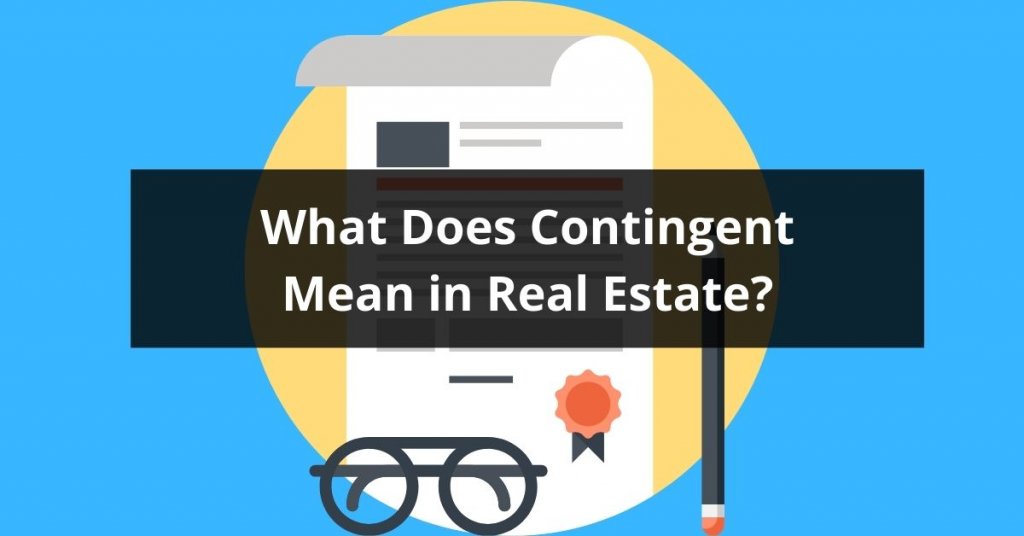Your dream home is now listed as contingent. While that sounds like a bad thing, it doesn’t necessarily mean you won’t end up being able to buy this property.
The term contingent doesn’t exactly come across as inviting, but it’s nothing to keep you up at night. Contingent is just a real estate term and below you’ll learn what contingent means in real estate, how it applies to a home sale, and what it means to you as a home buyer.
What does contingent mean in real estate?
Contingent in real estate means that the seller has accepted the buyer’s offer, and now either party is sorting through their responsibilities as laid out in the contract they signed before closing.
The term contingent is derived from the contingencies that are put in place by the contract. Those contingencies are in place to provide a legal out for either party if something goes wrong or if either violates their end of the contract.
For example, if the home inspection reveals an issue that the seller failed to disclose, or the buyer fails to come up with the cash to purchase the home, the contract can be void allowing either party to back out unless a solution is met.
Something to keep in mind is that contingent isn’t the universal term for this period of the home buying process. Some areas may be listed under contract instead, but either term refers to the same stage of the home buying process. And if a solution is not met, you may be able to put yourself in the running and still buy the house.
Does contingent mean the house is sold?
No, contingent does not mean the house is sold. Contingent does however mean the seller has accepted an offer and a contract is in place.
Again, contingent in real estate is solely referring to the period of time before closing when either party is responsible for meeting their end of the contract. A lot can go wrong during this time frame and if any of the issues are covered by contingencies written into the contract, this can make the contract void and the house being listed on the market again.
What is the difference between contingent and pending in real estate?
Contingent means the buyer and seller are working to make sure either party meets their end of the contract. Pending, on the other hand, refers to the period afterward. It tells you that either end of the party has met their end of the contract and the final sale is processing. This does not mean that the house is sold; issues can arise forcing either end to back out of the deal.
Can you put an offer on a house that is contingent?
You can still make an offer on a home that’s listed as contingent. Only the seller cannot accept that offer until the original deal has fallen through or is terminated on account of the buyer not being able to match better offers that are received thanks to the bump clause.
That is why you shouldn’t let a house listed as contingent discourage you from making the best attempt that you can to make the home yours, as there is a chance that the original buyer might fail to meet their end of the contract.
Regardless, it is wise to tread carefully about a home that comes back onto the market after the original sale has fallen through. There is no guarantee that the original buyer was the issue, and there may be a problem with the house that inspired them to walk away. It’s a good idea to speak with a real estate agent that understands the complexities of contracts and listings and who can advise you on whether or not making an offer on a contingent home is a good idea.
How do you bump a contingent offer?
Sometimes a bump clause may be in place, which allows the seller to accept better offers than the original. However, there is no guarantee that they will go with your offer over the original buyer’s. They must notify the original buyers to see if they will waive their contingencies or terminate the contract.
How long is a contingency on a house?
At the very least, you can expect the contingent period to last a couple of weeks. However, it all depends on the terms of the buyer and seller’s contract. The contract gives either party a set amount of time to have the home inspected, secure loans, and so on. You also can’t rule out the fact that the parties involved can work faster or slower than others, making it hard to place an average timeframe on this period.

